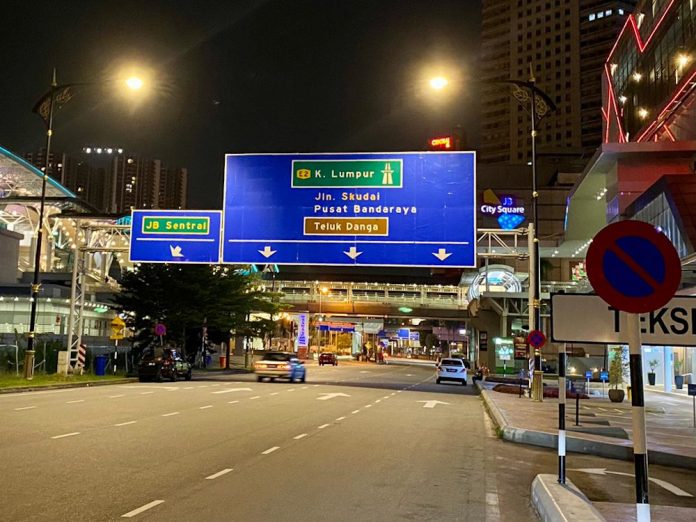
Subscribe to our Telegram channel for the latest updates on news you need to know.
JOHOR BARU, Feb 9 — It has been almost a year since Joanna Lee visited Johor Baru despite living not that far away. Just across the Causeway in Singapore, to be exact.
The 74-year-old retiree, who is married to a Singaporean, has been unable to visit her hometown due to the Covid-19 pandemic.
“I really miss my regular bi-weekly visits to the (Johor Baru) city centre and visiting my relatives.
“I feel a bit sad as the coming Chinese New Year celebration is just days away and it’s usually a busy time for me shuttling to and from Singapore,” Lee told Malay Mail by phone.
Lee is among a fairly large group of Malaysians in the island republic who are unable to visit their hometowns because of travel restrictions.
“I was born and grew up in JB, so there will always be a “feel good” feeling when I come over.
“Usually at this time nearing Chinese New Year, I will make day trips for some shopping of biscuits and bak kwa (barbecued pork jerky).”
So close, yet so far
Before the Covid-19 pandemic and the first movement control order (MCO) last year, Johor Baru city centre was a busy place with Singapore-registered vehicles lining up on the Causeway to cross over and shop or just eat on weekends.
Many Singaporeans, permanent residents and Malaysians working in Singapore have family in Johor Baru.
But all that ended with the pandemic.
“For Chinese New Year and the reunion dinner, I will just be with my husband at our home in Ang Mo Kio this year. We have no problems as there are now video call facilities for us to keep in touch with our loved ones,” she said.
Lee said that it does not make sense for her to go back to Johor Baru as she will have to spend extra money and time to be quarantined and similarly when she returns to Singapore.
“The reality is that it will be impossible as long as the Covid-19 situation still poses a risk,” said Lee.

Staying safe in Singapore
In January, Malaysia imposed a second movement control order (MCO) in several states including Johor, which was later expanded to the rest of the country. A state of Emergency has also been declared.
P.Y. Cheah, a 40-year-old business consultant, will be spending time with his partner in Yishun, Singapore due to the risks and hassle involved in returning to Johor.
He said that he did not have the Periodic Commuting Arrangement (PCA) pass that will allow him to return to Johor and be quarantined for two to three days.
“I used to regularly travel back to my family home in Kulai at least twice a week before the first MCO was implemented last year.
“I last managed to spend two days during the last Chinese New Year with my mother and siblings before the lockdown was announced,” he said when contacted.
Cheah said he will miss his mother’s Chinese New Year cooking and doing Chinese New Year shopping in Johor Baru the most.
“People say that one can get the same stuff and food here in Singapore, but being a Johorean it’s just not the same for me.
“I will also miss the wan tan mee and other noodles in Johor,” he said, adding that he will wait till the pandemic ends and the borders can safely open again before he visits.

Back home, but no celebrations
James Chow, on the other hand, managed to make it back to Johor Baru on January 28 under the PCA scheme.
The 44-year-old project manager took the opportunity to return and spend Chinese New Year with his family under the PCA scheme as he managed to make work-from-home arrangements with his Singapore employers.
“But I’m not hoping for a lot this year as the economy isn’t that good and the Chinese New Year celebrations will be more of a close family affair in Johor Baru,” he said when contacted.
Chow said that the reality now is that many Malaysians who are working in Singapore have lost their jobs.
“The situation is not like before where Malaysians working in Singapore will have good purchasing power.
“Times are now tough and I’m grateful that I still have a job and can afford to care for my wife and young son,” he said.
Chow said he will make it a point to spend as much time as he can with his immediate family until February 28 when he will have to return to Singapore for a minimum of 90 days.
On his return to Singapore, he will also have to pay for a 14-day quarantine before he can start work.
“I hope that things will normalise when the pandemic is over and travel restrictions are lifted,” said Chow.


